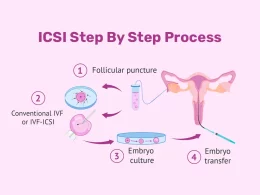What exactly is organic food? Organic food, ecological food, or natural food are food and drinks produced by methods complying with the standards of organic farming. Organic food is produced through agriculture that only makes use of natural materials. The products have to follow a strict set of guidelines.
In his book “Look to the Land” (1940), Lord North Bourne invented the term “Organic Farming.” He conceptualized “the farm as organism” to describe a holistic, ecologically balanced approach to farming—in contrast to chemical farming.
Why Switch to Organic Food?
Research-driven evidence suggests Organic Food Products are healthier and more nutritious than their counterparts. Organic farming is also better for the environment. It reduces pollution, conserves water, reduces soil erosion, increases soil fertility, and uses less energy.
Let’s take a closer look at the benefits of organic foods and the reasons to make the switch:
Soil Conservation:
The essence of organic agriculture is healthy soil. Organic farmers use organic fertilizers, compost, and other organic matter, green manures, and animal manures to build healthy soil. Organic farming creates healthy soil, healthy food, and a healthy environment.
Environmental Change:
The primary benefit of organic food production is compared to conventional agriculture. Organic farming supports carbon sequestration, which helps lessen the rise in atmospheric carbon dioxide levels. Healthy soil counters climate change by pulling carbon out of the atmosphere. Similar to how ecosystems like prairies and forests act as carbon sinks in nature.
Conserving Aquatic Biodiversity:
Organic farming protects the streams and lakes downstream from the toxic runoff that conventional farming produces. Excess nitrogen and phosphorous used in conventional agriculture that has leeched into the water causes an overgrowth of algae in a short time. The overgrowth of algae consumes oxygen and blocks sunlight from underwater plants.
Pollinator Preservation:
Organic farming has an important role in supporting our pollinators’ health. Large-scale, chemical pesticide and insecticide-intensive agricultural production have become a major source of threat to pollinators. According to scientific research, toxic synthetic pesticides increasingly cause the destruction of native habitats, and a decrease in nutritious forage due to extensive use of mono-cropping is detrimental to pollinators.
Nutritional and health enhancements:
Synthetic pesticides, fertilizers, and genetically modified organisms (GMOs) are not used to grow organic foods. This means fewer harmful chemicals entering your family’s bodies. Organic produce frequently contains more antioxidants, vitamins, and essential nutrients, which are beneficial to overall health. Reduced Exposure to Pesticides:
Conventional farming methods rely heavily on chemical pesticides, which can leave residues on fruits and vegetables. You can reduce your family’s exposure to these potentially harmful substances by choosing organic, which is especially important for young children whose developing bodies are more susceptible. Better Taste and Quality:
Many people find that organic food tastes better because it is grown in nutrient-rich soil and harvested at its peak. Fresh, flavorful fruits and vegetables can encourage your family to eat more produce and enjoy healthy meals together.
Support for Environmental Sustainability:
Organic farming practices are designed to be eco-friendly. They use crop rotation and composting, which improve soil health and reduce pollution. Your family makes a contribution to a planet that is more sustainable for future generations by choosing organic food. Humane and ethical methods: Organic farming prioritizes ethical practices, including sustainable methods and the humane treatment of workers. Supporting organic means aligning with values of compassion and responsibility, which benefits communities and ecosystems alike.
Stimulates Immunity: Consuming organic foods can strengthen your family’s immune systems. With fewer toxins and higher nutrient content, organic eating supports your body’s natural defense mechanisms, helping everyone feel healthier and more energetic.
Are organic foods richer in nutrients?
From a nutritional perspective, a 2014 systemic review and meta-analysis found that organically grown crops had higher antioxidant concentrations and lower cadmium levels (found in cigarettes and can damage the lungs.
Organic food may also contain higher levels of phosphorus, iron, magnesium, and vitamin C, according to another study. This is particularly worth considering when iron deficiency is a common problem in the UK and significantly impacts a person’s overall health, including thyroid function, energy levels, exercise ability, and muscle health. In the same way, if you choose to eat vegan, leafy greens that have been treated with pesticides may not provide you with the amount of iron you thought they would, making supplementation even more important. Magnesium in food may be affected by organophosphates because of the chemical’s effect on soil pH, which affects plant nutrient uptake and may bind to magnesium, making it less available (European soils lack selenium because of their acidity, so pH really does matter). As a result, this can decrease dietary magnesium intake. The mineral magnesium is crucial for over 300 biochemical processes in the body, including energy metabolism, DNA, muscle and nerve function, and bone health. Insufficient magnesium intake can lead to various health issues and everyday challenges, including low energy and poor sleep.
Rich in Antioxidants:
Scientific studies show that antioxidants in organic foods are good for health. Organic foods are free from harmful chemicals. It enhances overall well-being and reduces exposure to heavy metals.
Antioxidants in organic foods help prevent heart disease, cancer, vision problems, premature aging, and cognitive issues. Organic food choices help people live healthier lives.
Combat Antibiotic Resistance:
Nearly 700,000 people die each year as a result of antibiotic-resistant microorganisms linked to residues in non-organic meat and milk. More than 75% of worldwide antibiotics are used in non-organic animals, raising the risk.
Organic standards mean no routine antibiotic use for livestock. When you choose organic, your plate becomes a frontline defense against antibiotic resistance. Unlike conventional methods, organic farming avoids antibiotics and synthetic hormones, contributing to a safer food system.












